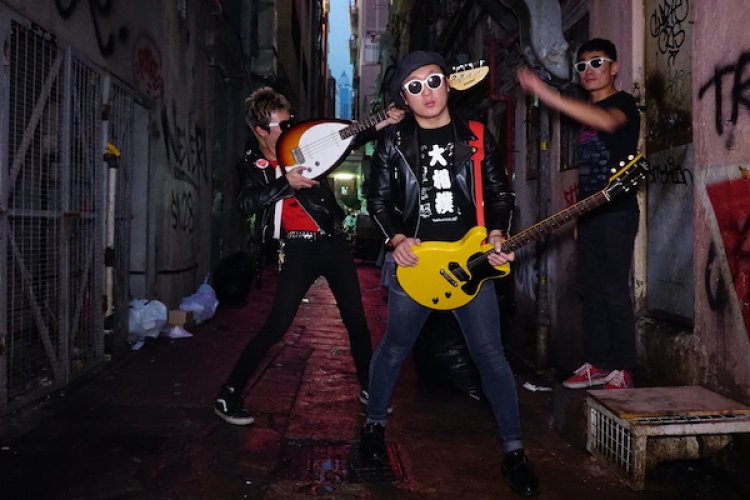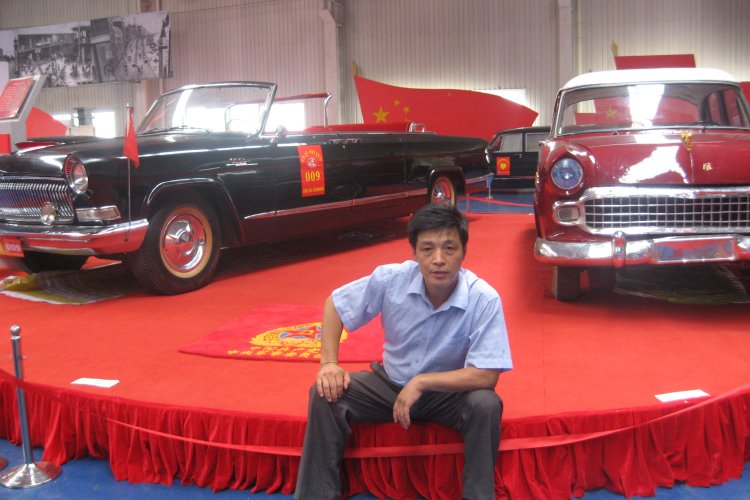Taking the Entrepre-cure - Spa de Feng and Salon Aqua Salus Owner Xu Feng
Xu Feng understands the spa industry. Having soaked up a vast knowledge about treatments, client service, and business strategy during his formative years in Europe, Xu opened his first men’s spa, Spa de Feng, in Wudaokou in 2006. Since that time, his business has expanded to the CBD, and even Singapore. In 2009, Spa de Feng was voted Best Men’s Spa in China at the Asian Spa & Wellness Festival.
Beijing is a fertile ground for a thriving spa culture: it has lots of money, and stressors to match, but nonetheless many spas fail to achieve the long-running success that Xu’s spas have enjoyed. Agenda sat down with Xu to learn the prescription for success in the spa business.
How did you get started in the spa business?
I lived for many years in Europe. In Europe, spas are very natural things. At the time I was there, around 2000, spas were very catchy and popular. When I came back to China in 2004, I noticed that there were only three types of spas here. There were these traditional Chinese spas that are basically medical places offering acupuncture and medicinal massage. They are very effective, but ugly, and their service and décor reminded me of medical clinics. Then there were the beauty salons, but these focused on things like facials, and were mostly a social place for women where they could call each other “sister” and “auntie.” They were very feminine, and also very exclusive to outsiders. Finally there were international standard spas, but these were mainly in hotels, and they were very, very expensive. I found that if I wanted to have a nice massage, in a nicely appointed environment, I’d have to pay for it, but this was a problem because I a student who lived far from everything and couldn’t afford to do this kind of thing once a week. After a lot of thinking, I decided that I needed my own personal masseur! This was, of course, not very practical, so I started thinking about how to make it into an entrepreneurship idea.
Did you grow up around spas?
My mom was an importer/exporter of spa products, so yes, I was brought up in spas. I got to know all kinds of things: different therapies, how to conduct them, how to maintain service, and everything else.
What would you say makes for a great spa?
Well, I think that each business caters to a very specific clientele. It is very important is to be able to position yourself correctly, otherwise it’s going to be a disaster in terms of profit and return. For me, a great spa would be, first and foremost, something accessible—not only financially, but also psychologically. The Evian Spa in Shanghai, for example, is very good in a lot of respects, but I’ve had a lot of clients tell me that they are not comfort-able going there. Even during the treatment, you constantly have the feeling that you’re doing something wrong, something not up to standard, or you’re not worthy of this place. (laughs) But for me, the spa is a very familiar place, not something distant, or something that you should have to put on a face for.
What advice would you give someone wanting to enter the spa business?
I think the most important thing is the positioning. It’s so important to have a niche, to have a cornerstone of your business. You cannot have everything. You need to have some clients who are faithful. And the new thinking is just to pay a lot of attention to the Chinese clients. We used to be very expat and business traveler oriented: eighty or ninety percent of our customers were foreigners at one time. But since late 2007, the time of the big financial crisis, things have changed a lot. Companies used the crisis as an excuse to terminate a lot of expat packages, so more and more of our clients are local, or foreigners living here under local pay. The thing is, people still have high expectations, so the trick is to blend these two things: the local price and an international standard of service.
What differences do you notice in the types of treatments that foreigners and Chinese clients go for?
I won’t say there’s an intrinsic difference, but they do have different expectations and different aims when they come to the spa. For foreigners, we are one of the few spas they could go to; they could not go to a Chinese spa in many cases. So when they come here they are very open to suggestions: they get facials, they get waxing, massages of course, and different body treatments. Chinese clients wouldn’t come here for a facial. They would go to a more facial-oriented place. But they come here for our massage because it is established as one of the best in town. Actually, I think the only way that foreigners are different is that they do a lot more waxing, for physical reasons. (laughs) But I think it’s changing, because Chinese do a lot of waxing now, too.
What sets a men’s spa apart from an ordinary spa?
Everything! In all aspects, you have to know that your clients are men. So the first thing is to avoid all of the feminine traits of the spa business: the décor, the music, the techniques, the service… With men, there isn’t the same gossip when they come to the spa. You don’t really ask them anything. I think a problem with a lot of men’s spas in Beijing is this: they imagine that by calling themselves a men’s spa, they become a men’s spa. And they might be, but they won’t make clients feel comfortable. A lot of people in the men’s spa business actually come from the female spa business, but they don’t really try hard enough to adapt. Men are objective-oriented. They come in You don’t need to do any hard selling, because it never works! They know what they want. Give them what they want, and they will be happy! (laughs)order to have a specific thing done.
Is expansion changing your business model?
I don’t think it’s changing my business model. I think Singapore makes sense because south Asia is one of the most important roots of spa culture, so I just want to be closer to those things. I want to have more things to learn from and adapt to. I think every market opens a different opportunity, and also a very different challenge. It’s very hard to copy a model completely to a different market. In France, spas need to be fully booked one week in advance, otherwise they are not making any money. But in China there is an overabundance of service. Wherever you go, you always can go to a spa, and Chinese clients never make appointments. Even if you are running at twenty percent of capacity, you are still profitable.
What are your most popular treatments?
Our Signature Relaxation Massage. We have also had very good feedback on our Signature Four-Hands Massage. Actually, I’m very proud of this treatment. It’s designed according to the theory of yin and yang energies. It starts with one person on the legs and feet, and the other person on the back. The techniques are connected according to the yin and yang of the body. And then the client turns over and one therapist conducts a facial, while the other one does foot reflexology.
What do you like to do to relax?
I sing. I’m a trained tenor, but I very seldom sing arias. Mostly I just sing karaoke! (laughs) You can often find me at Party World! My other passion is to go around the city discovering new restaurants. Living in a city like Beijing gives you the opportunity to discover all of these great restaurants that have been established for more than one hundred years. I also have favorite places for each type of cuisine: Morio for Japanese, Bei for Chinese-Japanese-Korean fusion, CRU for steak, and Justin’s for French.
Morio J-Cuisine Daily 10am-2.30pm, 5.30-10.30pm. 1/F, Hotel G, 7 Gongti Xilu, Chaoyang District (6551 6999) 朝阳区工体西路7号
Bei 北 Daily 5.30-10.30pm. B1/F, The Opposite House, Bldg 1, Sanlitun Village, 11 Sanlitun Lu, Chaoyang District (6410 5230) 朝阳区三里屯路11号三里屯Village1号楼瑜舍地下1层
CRU Steakhouse Daily 6-10pm/F, JW Marriott Hotel, China Central Place, 83 Jianguo Lu, Chaoyang District (5908 8530) 朝阳区建国路83号华贸中心JW万豪酒店2层
Justine’s 杰斯汀 Daily 6.30-10am, noon-2pm, 6-10pm. 1/F, Jianguo Hotel, 5 Jianguomenwai Dajie, Chaoyang District (6500 2233 ext 8039)朝阳区建国门外大街5号建国饭店1层
Article from Agenda, issue 70, Dec 30-Jan 12. To read more from the most recent issue of Agenda, download the PDF here. To find a copy, contact our distribution department at distribution@agendabeijing.com with an idea of where you work, live or play and we'll tell you where you can find one near you.






